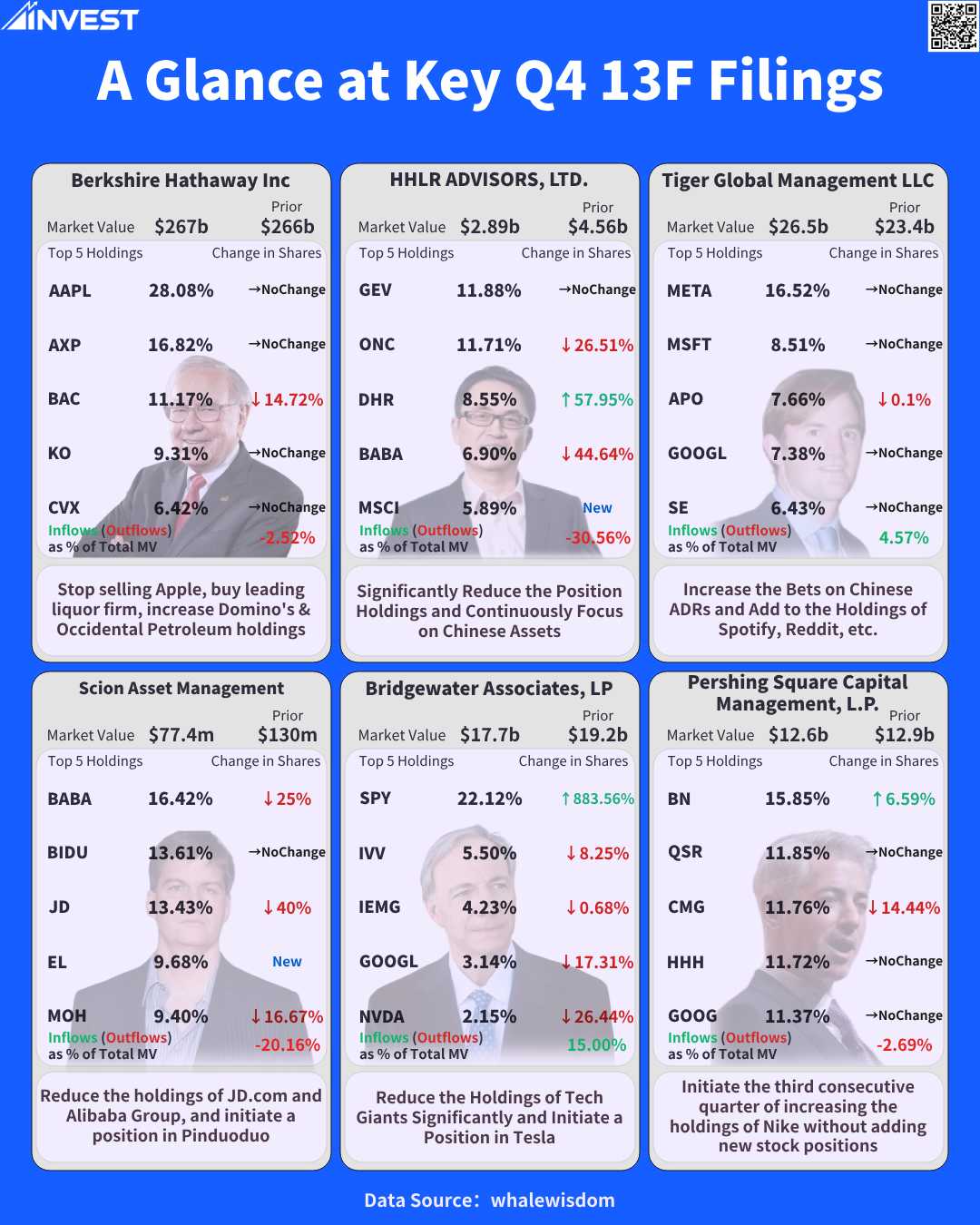A Glance at Key Q4 SEC 13F Filings
Wall Street titans' Q3 filings unveiled, offering insights into investment trends. According to the 13F filings for the fourth quarter of 2024, Berkshire Hathaway slightly increased its holdings in Occidental Petroleum and reduced its stakes in Bank of America and others, indicating its focus on traditional industries such as energy.

Hillhouse Capital adjusted its positions in Chinese ADRs and still showed a preference for sectors like the Internet. Tiger Global Management favored technology, biopharmaceuticals, and e-commerce.
Michael Burry reduced his holdings in JD.com and Alibaba Group and initiated a position in Pinduoduo. Bridgewater Associates trimmed its stakes in major tech giants, initiated a position in Tesla, and increased its holdings in fintech stocks like PayPal. Pershing Square Capital Management continuously increased its position in Nike and held shares of Uber, showing an optimistic view of the consumer and transportation sectors.
Overall, various institutions and investors have different judgments on the future trend of the US stock market and distinct investment preferences, making diverse arrangements between traditional and emerging industries.
Turning market noise into visual signal.
Latest Articles
Stay ahead of the market.
Get curated U.S. market news, insights and key dates delivered to your inbox.

Comments
No comments yet